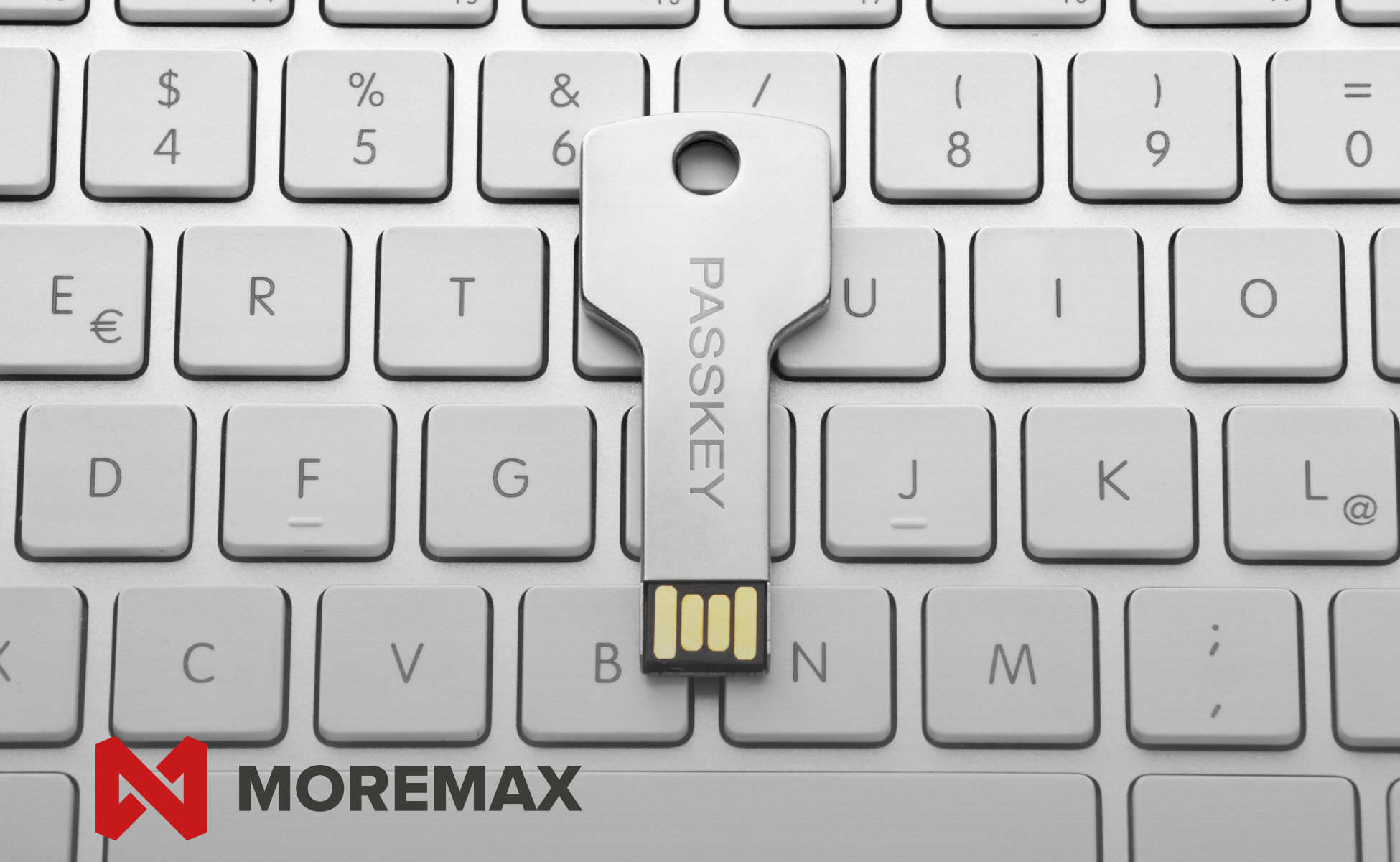
As a lawyer, solo practitioner, or immigration attorney, your daily work involves handling sensitive client information, confidential case files, personal data, and critical legal documents. Protecting this information is not just a professional responsibility; it’s a legal and ethical obligation. Yet, for years, the legal industry has relied on passwords to secure accounts, despite their vulnerabilities. Passwords are often forgotten, reused across multiple platforms, or worse, stolen by cybercriminals through phishing attacks or data breaches.
The good news? A more secure and efficient alternative is here: passkeys. With Microsoft’s recent updates to Windows 11, passkeys are becoming easier to integrate into your practice, offering a game-changing solution for safeguarding your digital assets. This blog post explores what passkeys are, why they matter for legal professionals, and how these improvements can help you transition to a password-free future.
What Are Passkeys?
Passkeys are a modern, secure replacement for traditional passwords. Instead of relying on a string of characters that can be guessed, stolen, or mismanaged, passkeys use advanced cryptographic technology to authenticate your identity. They allow you to log in to your accounts using something unique to you, such as:
- Biometric authentication: Your face or fingerprint, securely processed through your device.
- A secure PIN: A device-specific code that’s tied to your hardware, not stored on a server.
- Your device itself: Passkeys are linked to your trusted devices, like your laptop or smartphone.
Unlike passwords, passkeys are designed to be phishing-resistant. They consist of two cryptographic components: a private key that stays securely on your device and a public key stored with the service you’re logging into (e.g., your case management software or email provider). These keys work together like a lock and key, but the private key never leaves your device, making it nearly impossible for hackers to intercept or misuse.
For lawyers, this means a significantly reduced risk of unauthorized access to sensitive client data, even in the face of sophisticated phishing scams or data breaches.
Why Passkeys Matter for Lawyers
As a legal professional, you face unique cybersecurity challenges:
- Client Confidentiality: Attorneys handle highly sensitive information, from immigration documents to privileged communications. A single compromised password could expose this data, leading to breaches of trust and potential legal liability.
- Regulatory Compliance: Immigration lawyers and solo practitioners must comply with data protection regulations, such as GDPR for clients in the EU or state-specific privacy laws in the U.S. Passkeys provide a more secure authentication method to meet these standards.
- Time Efficiency: Managing dozens of passwords for case management systems, email accounts, and cloud storage is time-consuming and prone to errors. Passkeys streamline the login process, freeing up time for client work.
- Solo Practice Challenges: Solo practitioners often lack dedicated IT support, making it critical to adopt user-friendly, secure solutions that don’t require extensive technical expertise.
Passkeys address these challenges by offering a secure, convenient, and future-proof way to protect your practice’s digital assets.
Windows 11’s Passkey Revolution
Until recently, using passkeys on Windows felt cumbersome. Setting them up often required navigating third-party apps or websites, and integration with existing tools was inconsistent. However, Microsoft is changing the game with new features in Windows 11 that make passkeys seamless and accessible for legal professionals.
Key Improvements in Windows 11
- Integration with Password Managers: Microsoft has partnered with 1Password, a popular password manager trusted by professionals, to enable smooth passkey syncing across devices. This means you can store and manage passkeys for your case management platforms, email accounts, and other tools in one secure place. For example, an immigration lawyer using 1Password can log in to their USCIS account or client portal with a single biometric scan, without juggling passwords.If you use a different password manager, Microsoft’s new APIs make it easier for other providers to integrate passkeys with Windows 11. This ensures compatibility with the tools you already rely on, such as LastPass or Bitwarden.
- Microsoft Authenticator’s Shift to Passkeys: Microsoft is phasing out password management in its Authenticator app, making passkeys the default method for signing into Microsoft accounts. This shift signals a broader move toward a password-free ecosystem, which is particularly beneficial for lawyers who use Microsoft 365 for document management, email, or collaboration.
- Testing in Windows 11 Preview Builds: These passkey enhancements are currently available in the latest Windows 11 preview builds, with a full rollout expected soon. This gives early adopters—like tech-savvy solo practitioners—an opportunity to test and implement passkeys before they become standard.
What This Means for Your Practice
For lawyers, these updates translate to:
- Enhanced Security: Passkeys eliminate the risk of password theft, reducing the likelihood of data breaches that could compromise client confidentiality.
- Simplified Workflows: With passkeys integrated into Windows 11 and password managers, you can log in to multiple platforms quickly and securely, saving time for billable work.
- Future-Proofing: As Microsoft and other tech giants (like Google and Apple) push for passkey adoption, transitioning now ensures your practice stays ahead of the curve.
How to Get Started with Passkeys
Adopting passkeys in your legal practice is easier than you might think. Here’s a step-by-step guide to help you get started:
- Update to Windows 11: Ensure your devices are running the latest version of Windows 11 to take advantage of passkey support. If you’re using an older version, consider upgrading or consulting with an IT professional.
- Choose a Password Manager: If you don’t already use a password manager, consider 1Password or another provider that supports passkeys. These tools will help you manage and sync passkeys across your devices.
- Enable Passkeys for Key Accounts: Start by enabling passkeys for critical platforms, such as your Microsoft 365 account, case management software (e.g., Clio or MyCase), and email providers. Check with each service to confirm passkey support.
- Train Your Team: If you work with paralegals or administrative staff, provide training on how to use passkeys and why they’re important for client data security.
- Monitor Updates: As passkey support expands, keep an eye on new integrations for the tools you use. Microsoft’s ongoing improvements will likely make passkeys even more seamless in the future.
A Password-Free Future for Legal Professionals
The legal industry is no stranger to technological change, from the adoption of cloud-based case management to virtual client consultations. Passkeys represent the next step in this evolution, offering a secure and efficient alternative to passwords. With Windows 11’s improved passkey integration, now is the perfect time for lawyers, solo practitioners, and immigration attorneys to embrace this technology.
By transitioning to passkeys, you can:
- Protect sensitive client data from cyber threats.
- Streamline your login processes to focus on what matters—serving your clients.
- Stay compliant with data protection regulations.
- Position your practice as forward-thinking and tech-savvy.
If you’re ready to explore passkeys or need help implementing them in your practice, our team is here to assist. Contact us today to learn how we can help you transition to a secure, password-free future.


